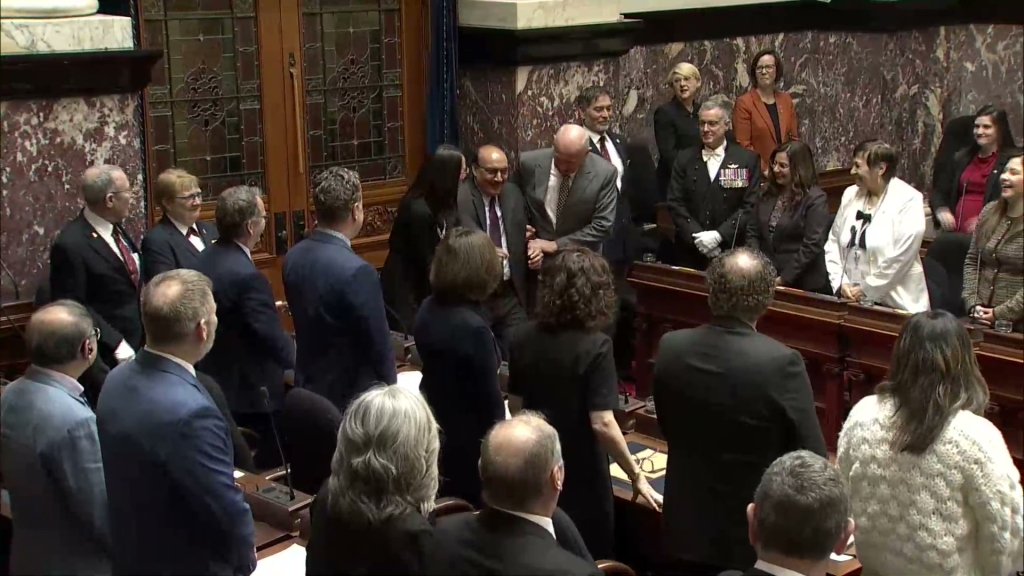After each provincial general election, a new Parliament is created. That Parliament will exist until the next general election is held. Following the adoption of the Constitution (Fixed Election Dates) Amendment Act, 2001, each Parliament in B.C. will last for four years, unless that time is cut short by a vote of non-confidence against the government.
The first order of business in any new Parliament is the election of the Speaker. The Speaker is an MLA that is elected by other MLAs through a secret ballot to oversee debates and make sure the Legislative Assembly follows established rules of order and procedure. All MLAs are permitted to vote in this secret ballot, and all MLAs, except the Premier and Cabinet ministers, are eligible to run in this election. This process is overseen by the Clerk of the Legislative Assembly.
Each Parliament is typically composed of a number of legislative sessions, which are always opened and closed by the Lieutenant Governor. That’s why, for example, when you look at Hansard (the full report of the debates in the House), you’ll see headings such as "41st Parliament, Fourth Session."
Each new session is marked by its own throne speech and, typically, a budget speech, as well as newly proposed legislation for the Assembly to debate and approve. However, the election of the Speaker isn’t necessarily part of every new session. The Speaker continues to hold office for the remainder of the Parliament until that Parliament is dissolved or if the Speaker is recalled, resigns, retires, or dies.

